Gender in Science, Technology, and Innovation
Working Group Coordinator
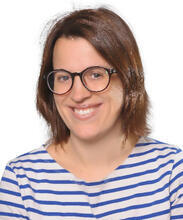
Bio (English)
Jeanne Hersant obtained her PhD in Sociology from the Ecole des Hautes Etudes en Sciences Sociales in Paris (2007). After a postdoctoral fellowship in Germany (Albert-Ludwigs-Universität Freiburg), she started her academic career in Chile. Since 2018 she is an assistant professor at the School of Social Work of the Catholic University of Chile. Her research interests include access to justice and the social construction of knowledge and scientific skills, as well as interdisciplinarity. She is one of the main investigators of the 3-year interdisciplinary project “Gender and Mathematics” funded by the Chilean Research Agency (PIA-ANID ANILLO SOC180025): www.anillomatematicasygenero.cl
Bio (Spanish)
Jeanne Hersant obtuvo su doctorado en Sociología por la Escuela de Altos Estudios en Ciencias Sociales en París (2007). Luego de un postdoctorado en Alemania (Albert-Ludwigs-Universität Freiburg), se ha desempeñado académicamente en Chile. Desde el 2018 es profesora asistente en la Escuela de Trabajo Social de la Pontificia Universidad Católica de Chile. Sus temas de investigación se relacionan con el acceso a la justicia, la construcción social del conocimiento y las competencias científicas, así como la interdiscipinariedad. Jeanne Hersant es una de las investigadoras titulares del proyecto interdisciplinar “Matemáticas y Género” fundado por la Agencia Nacional de Investigación y Desarrollo (PIA-ANID ANILLO SOC180025): www.anillomatematicasygenero.cl.
Group Members
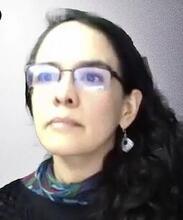
Bio (Spanish)
Investigadora asociada al Grupo Interdisciplinario de Estudios de Género —GIEG— de la Universidad Nacional de Colombia; integrante de la Red de Mujeres Unidas por la Educación MuXEd (México) y consultora independiente, actualmente desempeñándome como investigadora senior del estudio de caso - Colombia; en un estudio regional sobre impunidad hacia las violencias basadas en género en la región. Actualmente, resido en Colombia y he desarrollado mi proceso formativo tanto en este país, como en México, Holanda, Canadá y Sudáfrica. Soy Doctora en Antropología por la Universidad Nacional de Colombia —UNAL—; Magíster en Antropología, por la Universidad de los Andes (Colombia); Licenciada en Psicología y Diplomada en “Exclusión Social y Encierro: Psicoanálisis y Derecho”, por la Universidad Iberoamericana (Ciudad de México).
Mi trayectoria profesional de más de 25 años se ha caracterizado porun diálogo ininterrumpido entre la investigación interdisciplinaria, las prácticas educativas y formativas intra y extra académicas; y el
activismo y la acción colectiva para el avance de los derechos humanos, la justicia de género, la educación y la transformación cultural. Estoy convencida de la necesidad de construir puentes entre
movimientos sociales: feministas, de diversidades sexuales y de géneros, de jóvenes; pero al mismo tiempo en la importancia de crear alianzas entre los ámbitos académicos, de sociedad civil organizada y
Estatales, y de expandir estas redes de colaboración tanto a nivel local, como nacional e internacional.
Durante los últimos 10 años, he contribuido al diseño y ejecución de procesos investigativos, pedagógicos, de incidencia, formulación, implementación y evaluación de programas, proyectos y fundamentación de políticas públicas relacionadas con la educación y el desarrollo pedagógico desde una perspectiva de género e interseccionalidad. En esta misma línea, recientemente, tuve la oportunidad de incursionar en la docencia universitaria, impartiendo cursos como: Didácticas en
educación especial, Diseños metodológicos en investigación educativa, Praxis integral en primera infancia, Maestros y escenarios educativos, Praxis pedagógica con enfoque diferencial, y Epistemología de la diferencia. Mis intereses investigativos incluyen temas relacionados con: Los estudios sobre las niñas; educación, género, prácticas pedagógicas y formación docente; teorías de género y sexualidades;
antropología y estudios críticos feministas y de lo visual y sexualidades, género, ciudadanía y derechos humanos. He publicado trabajos académicos, informes de investigación y materiales didácticos y pedagógicos sobre estos temas. El más reciente, un capítulo sobre identidad de género e identidad docente, hace parte de un libro editado por la UNAM y la UIA (en prensa); y mi tesis doctoral, que
obtuvo distinción meritoria, se encuentra incluida en el plan de publicaciones de este año, de la Escuela de Estudios de Género de la Facultad de Ciencias Humanas —UNAL—. He invertido una parte sustancial de mi vida en conocer de primera mano y acompañar las experiencias subjetivas de niñxs, jóvenes,
mujeres, personas con experiencias de transición de género y personas con identidades de género y orientaciones sexuales no normativas.

Bio (English)
Elvia Castro is the Director, International Liaison Office TEC – Boston based in the University of Harvard (LASPAU Department), Boston, Massachusetts, United States. She has been a Doctor in Science and Engineering Education since 2011. As a researcher, she is part of the American Society for Engineering Education (2016) and the International Network for Social Network Analysis (2017). Her main lines of investigation are Innovation and Technology in Education, Social Network Analysis, Entrepreneurial Education and Education in International Contexts. She is currently a member of the Research and Strategic “Innovation and Entrepreneurship” Approach Group (Grupo de Investigación y Enfoque Estratégico “Innovación y Emprendimiento”) at Tecnológico de Monterrey. She has served as a professor at the School of Engineering and Sciences, Division Director at the School of Engineering and Sciences, Associate Director of Engineering and Sciences, and as Research Director at the Tecnológico de Monterrey. She completed a postdoctoral fellowship at the Department of Education at the University of Oxford, United Kingdom (2015-2016) and was a visiting professor at the University of California (Los Angeles) at the Department of Education (2009-2010). Dr. Castro has worked professionally for more than 20 years in the education, food (Pepsico, Domecq), electronics - IT (FESTO, Esslingen plant in Germany) and automotive (Yazaki, Japan) sectors. She has had the opportunity to work in Mexico, the United States, Germany, the United Kingdom, and Japan. She has led academic and collaborative projects with the University of Oxford (UK), University of Stuttgart (Germany), Harvard University (USA), Massachusetts Institute of Technology (USA) and the University of California (USA). She is fluent in Spanish, English, German, and Japanese.

Bio (English)
Researcher at the Center for Research and Gender Studies at the National Autonomous University of Mexico.
Lucía Ciccia joined the Center for Research and Gender Studies in 2019 in the area of Gender in Science, Technology and Innovation with the project “The incorporation of a gender perspective in the production of biomedical knowledge: Neurosciences and mental disorders”. Lucía holds a PhD in Gender Studies from the University of Buenos Aires (UBA), and a Bachelor of Biotechnology from the National University of Quilmes (UNQUI), both in Argentina. She carried out two years of research in at the Department of Physiology of the Nervous System at the Faculty of Medicine (UBA) as a CONICET’s doctoral fellow. She redirected her work towards Feminist Epistemology, finishing her doctorate at the Interdisciplinary Institute for Gender Studies at the Faculty of Philosophy and Literature (UBA). Her doctoral dissertation focused on the critical analysis of the neuroscientific discourse about sexual difference. She was part of the Institute of Philosophical Research (IIF-SADAF) from 2014 to 2018. In 2017, she was awarded first mention of the Bioethics Award sponsored by the Dr. Jaime Roca Foundation for her work “Sex and gender as variables in biomedical research and clinical practice”.
Her lines of research are: feminist epistemology and mental health, embodied mind, new feminist materialisms, situated knowledge and biological interpretation of genders.
Bio (Spanish)
Investigadora del Centro de Investigaciones y Estudios de Género de la Universidad Nacional Autónoma de México (CIEG-UNAM). En el año 2019 la Dra. Lucía Ciccia se integra al Centro de Investigaciones y Estudios de Género (CIEG-UNAM) en el área de Género en la Ciencia, la Tecnología y la Innovación con el proyecto “La incorporación de la perspectiva de género en la producción de conocimiento biomédico: Neurociencias y desórdenes mentales”. Lucía Ciccia es Doctora en Estudios de Género por la Universidad de Buenos Aires (UBA), Argentina, y Licenciada en Biotecnología por la Universidad Nacional de Quilmes (UNQUI). Realizó dos años de investigación en el departamento de Fisiología del Sistema Nervioso de la Facultad de Medicina (UBA) como becaria doctoral del CONICET. Reorientó su trabajo hacia la Epistemología Feminista, finalizando el doctorado en el Instituto Interdisciplinario de Estudios de Género en la Facultad de Filosofía y Letras (UBA). Su tesis se centró en el análisis crítico del discurso neurocientífico acerca de la diferencia sexual. Formó parte del Instituto de Investigaciones Filosóficas (IIF-SADAF) desde el año 2014 hasta el 2018. En el año 2017 obtuvo la primera mención del premio de bioética auspiciado por la Fundación Dr. Jaime Roca por su trabajo “El sexo y el género como variables en la investigación biomédica y la práctica clínica”.
Sus líneas de investigación son: epistemología feminista y salud mental, mente corporizada, nuevos materialismos feministas, conocimiento situado e interpretación biológica de los géneros.

Bio (English)
Nayana Guerrero is a Ph.D. student in Administrative Sciences at the National Autonomous University of Mexico (UNAM). She is currently developing research on digital inclusion and women entrepreneurs. Nayana holds a Master’s degree in Technology Administration from the UNAM and a Bachelor’s Degree in Business Administration from the Monterrey Institute of Technology and Higher Education (Tec de Monterrey), and specialized studies in Economics and Business at Sciences Po Paris. She has taken several courses and training on gender, business, and women’s rights.
Nayana is currently an intern at The United Nations Global Compact for Latin America and the Caribbean. She has also coordinated and directed innovation projects and new technologies in private companies, such as saXsa, a data science Mexican firm. In dissemination, she has given conferences and courses in different universities and organizations related to gender equality and information and communication technologies in the business world. Presently, Nayana is a member of The Latin American Interdisciplinary Gender Network at The MacMillan Center at Yale University.
Nayana has received several distinctions, including the National Award of Professional Excellence, 2018 edition by the National Chamber of Women, and she is a recipient of the Alfonso Caso medal. Currently, Nayana is a professor at UNAM and The Tec de Monterrey. Ms. Guerrero is an active member of the Mexican Federation of University Women (FEMU). She is also responsible for the Sciences Po Au Féminin Mexico Association, President of the Gender Equality Committee of the National Council of Business Women, and Vice President of Gender Equality of the Young Entrepreneurs Commission COPARMEX CDMX.
Bio (Spanish)
Nayana Guerrero es doctoranda en Ciencias Administrativas en la Universidad Nacional Autónoma de México (UNAM). Actualmente desarrolla una investigación sobre inclusión digital y mujeres empresarias. Tiene una Maestría en Administración de Tecnología de la UNAM y una Licenciatura en Administración de Empresas del Instituto Tecnológico y de Estudios Superiores de Monterrey (Tec de Monterrey). Asimismo, Nayana cuenta con estudios de especialización en Economía y Negocios en Sciences Po Paris y ha realizado diversos cursos y capacitaciones sobre género, empresas y derechos de la mujer.
Nayana es actualmente pasante en el Pacto Global de las Naciones Unidas para América Latina y el Caribe. La Mtra. Guerrero ha coordinado y dirigido proyectos de innovación y nuevas tecnologías en empresas privadas, como saXsa, una firma mexicana de ciencia de datos. En el área de difusión, Nayana ha impartido conferencias y cursos en diferentes universidades y organismos relacionados con la igualdad de género y las tecnologías de la información y comunicación en el mundo empresarial. Nayana es miembro de la Red Latinoamericana Interdisciplinaria de Género en el Centro MacMillan de la Universidad de Yale.
Nayana ha recibido varias distinciones, entre ellas el Premio Nacional a la Excelencia Profesional, edición 2018 de la Cámara Nacional de Mujeres. Es ganadora de la medalla Alfonso Caso en reconocimiento a su destacado desempeño en los estudios de Maestría en Administración realizados en la UNAM. Actualmente es profesora del Tec de Monterrey y de la UNAM, también es integrante de la Federación Mexicana de Mujeres Universitarias (FEMU), es responsable de la Asociación Sciences Po Au Féminin México, Presidenta del Comité de Igualdad de Género del Consejo Nacional de Mujeres Empresarias y Vicepresidenta de Igualdad de Género de la Comisión de Jóvenes Empresarios de COPARMEX CDMX.
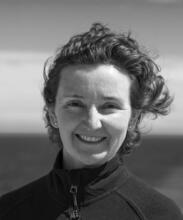
Bio (English)
Associate Professor at the Institute for Psychological Research, Universidad Veracruzana, campus Xalapa, Mexico and coordinates a research group on Gender and Community Health.
Alejandra read Basic Biomedical Research at the National Autonomous University of Mexico and obtained an MPhil in Biological Anthropology from Cambridge University and a PhD from University College London in the United Kingdom. Her research focuses on the application of evolutionary anthropology to reproductive and health issues combining field and laboratory methodologies. The overarching aim of her work is to understand the ecological, physiological, social and cultural sources of human variation. Current projects focus on the psychosocial and biocultural determinants of health, with particular interest in women’s health. She works towards generating evidence to inform policy aimed at increasing women representation in STEM and in public life in general.
Bio (Spanish)
Alejandra Núñez-de la Mora es Investigadora y docente en el Instituto de Investigaciones Psicológicas de la Universidad Veracruzana, campus Xalapa, México en donde coordina el Cuerpo Académico ‘Género y Salud Comunitaria’.
Alejandra cursó la licenciatura en Investigación Biomédica Básica en la Universidad Nacional Autónoma de México. Posteriormente realizó estudios de posgrado en Antropología Biológica en la Universidad de Cambridge y University College London en el Reino Unido. Desde entonces, su trabajo se centra en entender las fuentes ecológicas, fisiológicas, sociales y culturales de la variabilidad humana combinando metodologías de campo y de laboratorio. Sus proyectos giran en torno al estudio de los determinantes psicosociales y bioculturales de la salud con una perspectiva de género. Otra parte de su actividad académica se enfoca en la generación de evidencia para informar políticas y programas encaminados a incrementar la participación y mejorar las condiciones de las mujeres en las ciencias y en la vida pública en general.
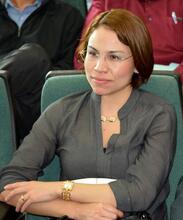
Bio (English)
Guadalupe Palacios-Núñez is a social sciences researcher who focuses on Science, Technology, and Innovation Policy from a gender perspective. She is interested in building indicators of women´s participation in science and technology to know the impact of science policy. She holds a Ph.D. in Public Policy, a Master of Sciences in Local Development, and a Bachelor’s in Business Administration. Currently, Guadalupe is a postdoctoral researcher at the Centro de Investigaciones y Estudios de Género (CIEG), Universidad Nacional Autónoma de México, where she is working on gender mainstreaming in higher education.

Bio (English)
I was born in Córdoba, Argentina and I am currently living in Bariloche, Rio Negro Argentina. I am a Psychologist from the National University of Córdoba. I have a Gender, Social Sciences and Public Policy Diploma from the Latin American Faculty of Social Sciences, FLACSO; a Master’s Degree in Gender and at the present time I am a PhD candidate in Social Sciences from the Latin American Faculty of Social Sciences (FLACSO, Argentina). I am also currently working as a National Scientific and Technical Research Council’s Doctoral Fellow at the Institute for Research in Cultural Diversity and Process of Change, (IIDyPCa) of the National University of Rio Negro-CONICET. My Research Project focuses on institutionalization and implementation of gender policies processes in state spaces of Science and Technology, in which I investigate perceptions, representations, incorporation strategies, resistance and resilience of the Gender agenda.
Bio (Spanish)
Suzette M Sánchez Iudicello. Nací, en Córdoba Argentina y actualmente vivo en Bariloche, Rio Negro Argentina. Soy Psicóloga por la Universidad Nacional de Córdoba, Diplomada en Género, Ciencias Sociales y Políticas Públicas por la Facultad de Latinoamericana de Ciencias Sociales, FLACSO, Maestranda en Género y políticas Públicas y Doctoranda en Ciencias Sociales de la misma universidad (FLACSO, Argentina). Actualmente me desempeño como Becaria Doctoral del Conicet en el Instituto de Investigaciones en Diversidad Cultural y Proceso de Cambio, (IIDyPCa) Universidad Nacional de Rio Negro-CONICET. Mi Proyecto de Investigación se centra en los procesos de institucionalización y puesta en práctica de políticas de género en espacios estatales de Ciencia y Tecnología, en las cuales investigo sobre percepciones, representaciones, estrategias de incorporación, resistencias y resiliencias de la agenda de Género.
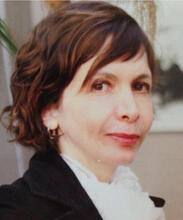
Bio (English)
Estela Serret is a professor-researcher at the Department of Sociology of the UAM-Azcapotzalco, Mexico, and Academic Director of the Center for Feminist Studies ConGenia, AC. National Researcher level II, she is a Sociologist from the UAM-A and a PhD in Political Philosophy from the UNED of Madrid, Spain. She specializes in Feminist Political Theory and in the study of the construction of gender identities, from a transdisciplinary perspective, which uses theoretical tools from sociology, anthropology, historiography, and psychoanalysis. On these two major problems of research, as a starting point, she publishes the books Feminine Identity and Ethical Project (2004) and Gender and the Symbolic (2002), respectively. From them, she has numerous publications; books, articles and book chapters, in each of these two lines. Among the most recent texts are:
“Identidad”, in Moreno and Alcántara (coords.) Key concepts in gender studies, 2018, and “Women as transactional objects in the institution of androcratic societies” in Atlánticas, International Journal of Feminist Studies, 2019.
Bio (Spanish)
Estela Serret es profesora-investigadora del Departamento de Sociología de la UAM-Azcapotzalco y directora Académica del Centro de Estudios Feministas ConGenia, A. C. Investigadora Nacional nivel II, es Socióloga por la UAM-A y Dra. en Filosofía Política por la UNED de Madrid, España. Se especializa en Teoría Política Feminista y en el estudio de la construcción de las identidades de género, desde una perspectiva transdisciplinaria, que recurre a herramientas teóricas de la sociología, la antropología, la historiografía y el psicoanálisis. Sobre estas dos grandes problemáticas de investigación publica, como punto de partida, los libros Identidad femenina y proyecto ético (2004) y El género y lo simbólico (2002), respectivamente. A partir de ellos, cuenta con numerosas publicaciones; libros, artículos y capítulos en libros, en cada una de estas dos líneas. Entre los textos más recientes se cuentan:
“Identidad”, en Moreno y Alcántara (coords.) Conceptos clave en los estudios de género. vol. 2. CIEG, UNAM. México, 2018, y “Las mujeres como objetos transaccionales en la institución de sociedades androcráticas” en Atlánticas, Revista Internacional de Estudios Feministas, Volumen 3, Número 1. http://revistas.udc.es/index.php/ATL/index
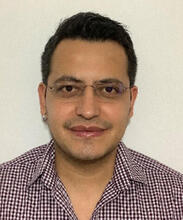
Bio (English)
Associate Researcher, Center for Research and Gender Studies (CIEG), UNAM
Dr. César Torres Cruz joined CIEG in 2020 as a researcher with a project that critically analyzes some of the social processes of the feminization of Human Papilloma Virus (HPV) and cervical cancer in Mexico City. Dr. Torres is part of the Mexican National System of Researchers (SNI-CONACyT). He has a PhD in Social and Political Science with orientation in Sociology from UNAM, a MA in Social Science and Humanities (with specialization in Gender Studies and Sociology) from Autonomous Metropolitan University, Cuajimalpa, and a degree in Social Communication from Autonomous Metropolitan University, Xochimilco. He did his postdoctoral fellowship at the UNAM School of Sciences’ Science and Technology Studies Group. Dr. Torres Cruz has taught undergraduate and graduate level courses on feminist theories, gender studies, sexuality studies, masculinities, social theory, and qualitative methodologies.
His research interests include gender, health, and sexuality inequalities; social studies of biomedicine and health; queer and LGBTI+ studies in Mexico.
Bio (Spanish)
Investigador del Centro de Investigaciones y Estudios de Género (CIEG) de la UNAM.
En el 2020, el Dr. Torres se integró al CIEG como investigador con un proyecto que analiza de manera crítica algunos de los procesos sociales de la feminización del Virus del Papiloma Humano (VPH) y el cáncer cervicouterino (CaCu) en la Ciudad de México. Forma parte del Sistema Nacional de Investigadores del Consejo Nacional de Ciencia y Tecnología de México (SNI-CONACyT). Es doctor en Ciencias Políticas y Sociales, con orientación en Sociología por la UNAM, maestro en Ciencias Sociales y Humanidades (con línea de especialización en Sociología y Estudios de Género) por la Universidad Autónoma Metropolitana (UAM), unidad Cuajimalpa y licenciado en Comunicación Social por la UAM-Xochimilco. Realizó una estancia posdoctoral en el grupo de estudios de la ciencia y la tecnología de la Facultad de Ciencias de la UNAM. El doctor Torres Cruz ha impartido asignaturas a nivel licenciatura y posgrado sobre feminismos, estudios de género, sexualidades, masculinidades, teoría social y metodología cualitativa.
Sus intereses de investigación son: género, salud y sexualidad; estudios sociales de la biomedicina y la salud; estudios queer y LGBTI+ en México.
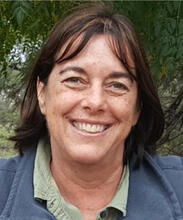
Bio (English)
Chair of the Council of Latin American and Iberian Studies at the MacMillan Center for International Studies of Yale University, USA Professor of Anthropology
Professor Valeggia is originally from Buenos Aires, Argentina, from where she received her degree in biological sciences (U of Buenos Aires). She received her PhD from the University of California, Davis in 1996 and then went on to do a postdoc at Harvard University. In 2005 she joined the Department of Anthropology at the University of Pennsylvania and in 2014, she moved to Yale University where she is a professor in the Department of Anthropology.
Her work is primarily concerned with human reproductive biology and the ecological and cultural context in which it develops. Her research program takes a biosocial/biocultural approach to understand reproductive patterns, maternal and child health, and the health of Latin American indigenous populations. She thanks the Qom of the province of Formosa, Argentina for their collaboration, patience, and friendship.
Bio (Spanish)
Directora del Consejo de Estudios Lationamericanos e Ibericos del Centro MacMillan de Estudios Internacionales de la Universidad de Yale, Estados Unidos
Profesora de Antropología
La Dra. Valeggia nació en Buenos Aires, Argentina, lugar donde obtuvo su título de Licenciada en Ciencias Biológicas (U de Buenos Aires). Recibió su doctorado de la Universidad de California en Davis en 1996 y luego completó un postdoctorado en la Universidad de Harvard. En el 2005 la contrataron como profesora en la Univ. de Pennsylvania (EEUU) y en el 2014 se muda a la Universidad de Yale, donde actualmente se desempeña como profesora en el Departamento de Antropología.
Su trabajo se concentra principalmente en la biología reproductiva humana y el contexto ecológico y cultural en el que ésta se desarrolla. Su programa de investigación tiene un enfoque biosocial/biocultural para entender patrones reproductivos, salud materno-infantil, y la salud de los pueblos originarios en América Latina. La Dra. Valeggia agradece a los Qom de la provincia de Formosa, Argentina, por su colaboración, paciencia y amistad.

Psychologist and current doctoral fellow of the National Council for Scientific and Technical Research of Argentina (CONICET). She works at the Institute for Research on Cultural Diversity and Change Processes of the National University of Río Negro (IIDYPCA-UNRN). In 2019 she began her PhD in Gender Studies at the University of Córdoba with the topic “Gender in the implementation of domestic ecotechnologies in Argentina and Mexico”. Previously, she was a project assistant in the Research Group on Ecotechnologies and Bioenergy of the National Autonomous University of Mexico (GIEB-UNAM). It was there that she directed her research interest towards gender studies in relation to energy and ecotechnologies, as well as the contributions of environmental feminisms and Latin American ecofeminisms in the discussion of the use of renewable energies.Bio (English)
Bio (Spanish)
Licenciada en Psicología y actual becaria doctoral del Consejo Nacional de Investigaciones Científicas y Técnicas de Argentina (CONICET). Trabaja en el Instituto de Investigaciones en Diversidad Cultural y Procesos de Cambio de la Universidad Nacional de Río Negro (IIDYPCA-UNRN). En 2019 inicia el Doctorado en Estudios de Género por la Universidad de Córdoba con el tema “El género en la implementación de ecotecnologías domésticas en Argentina y México”. Anteriormente fue asistente de proyecto en el Grupo de Investigaciones en Ecotecnologías y Bioenergía de la Universidad Nacional Autónoma de México (GIEB-UNAM). Fue allí que reorientó su interés en la investigación hacia los estudios de género en relación con la energía y ecotecnologías, así como los aportes de los feminismos ambientales y ecofeminismos latinoamericanos en la discusión del uso de energías renovables.
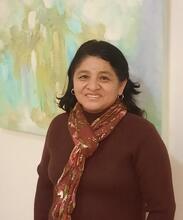
Bio (English)
Dr. Guadalupe Yapud is a multidisciplinary scholar in social sciences. Her research covers various areas such as sociology, cross-border migrations, development, human rights, and intersectionality in the Global South. She is a specialist in Andean Studies, and she participated in the Sociology and Gender program at the Latin American Faculty of Social Sciences (Flasco-Ecuador).
Committed to social justice and equality, she is an active member of the Canadian Association of Latin American Studies (CALACS), of the Latin American Interdisciplinarity Gender Network (LAIGN) at Yale University and of The Universidad Nacional Autónoma de México (National Autonomous University of Mexico).
While at the University of Ottawa, she is part of the research project on gender, academia, and social inequalities. The study aims to showcase the obstacles and intersectional barriers faced by researchers in the social sciences and STEM fields at Canadian universities.
She was also the main speaker at the one of the Café Féministes organized by the Institute of Feminist and Gender Studies.
